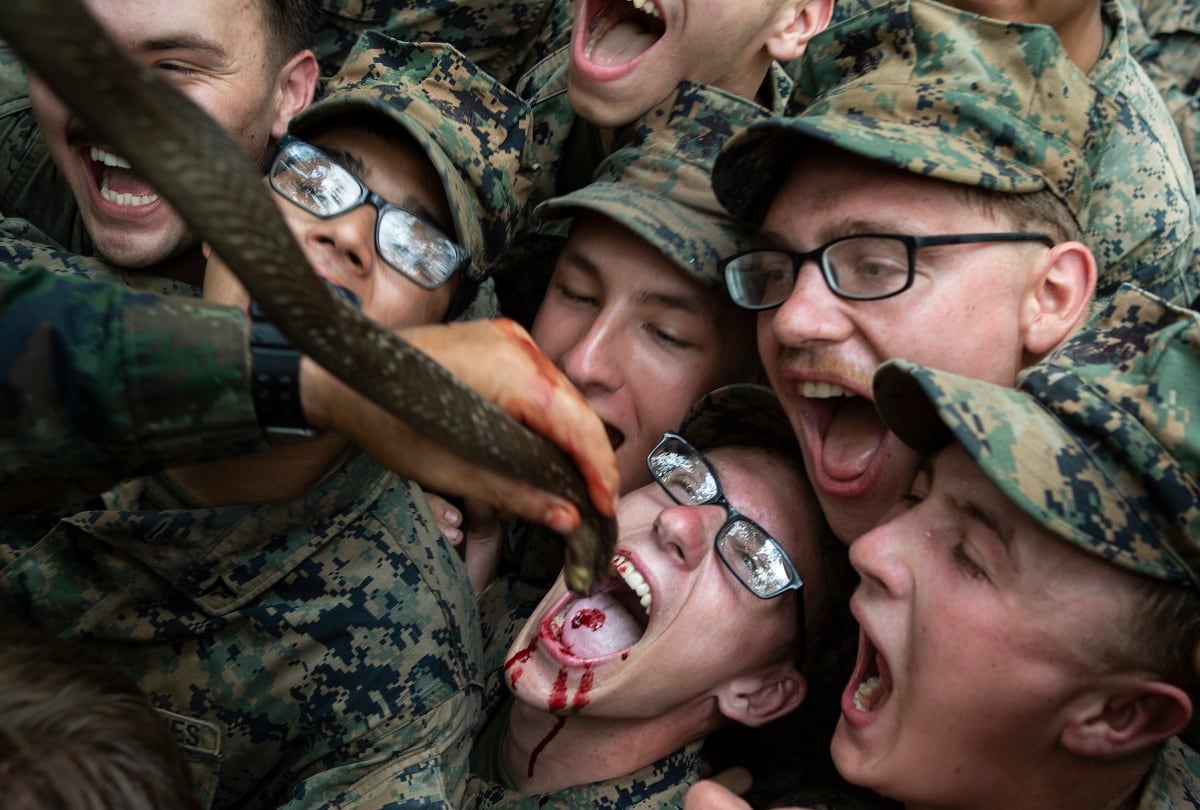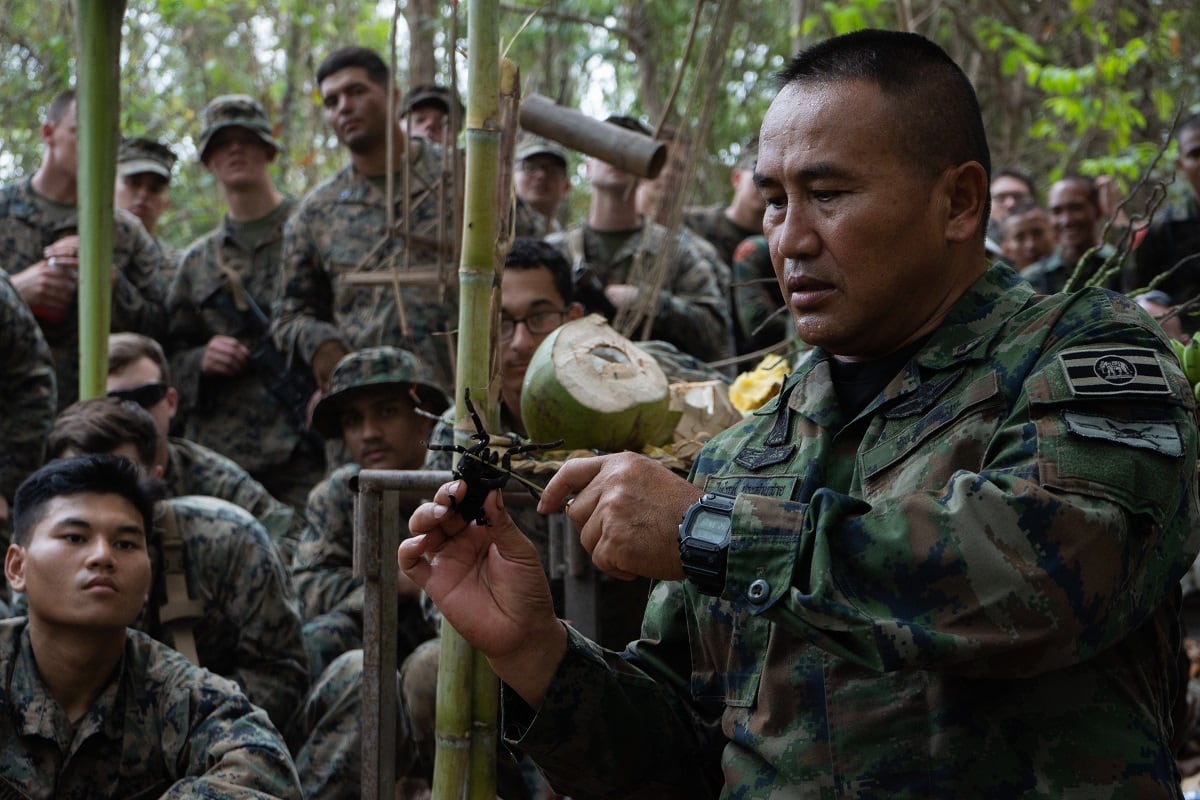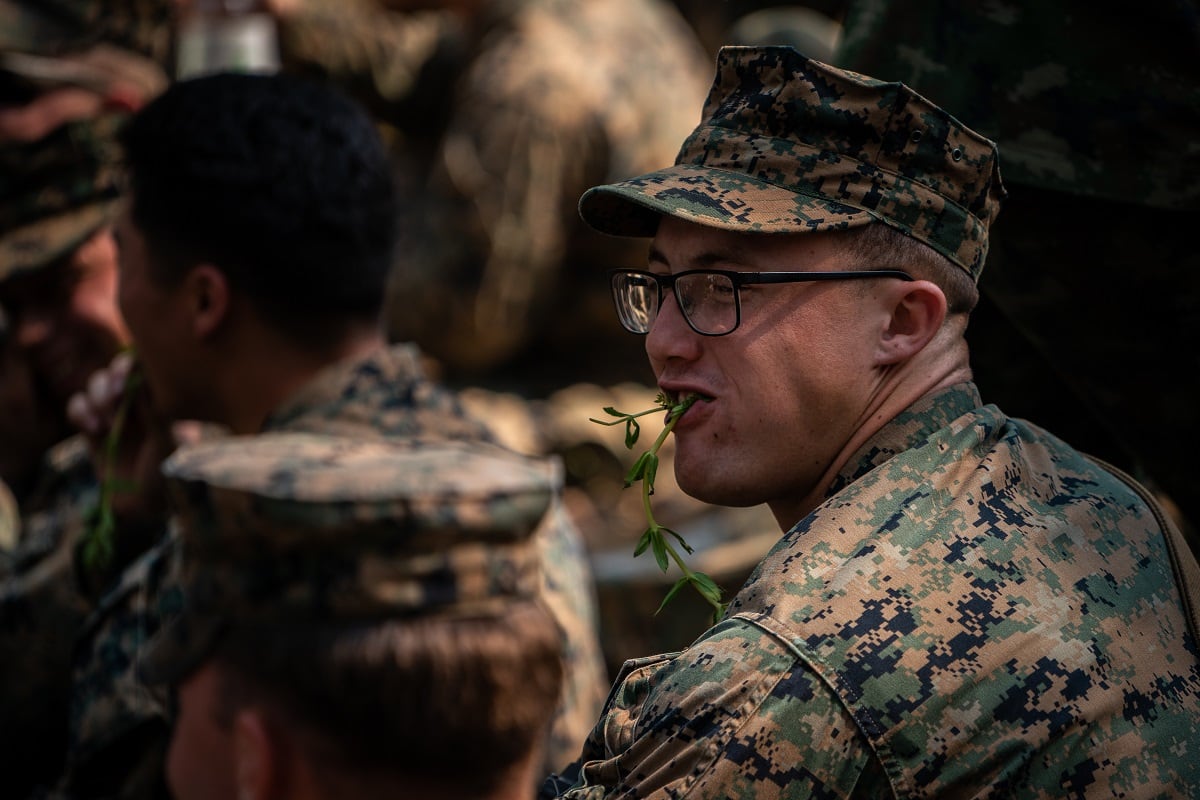It turns out decapitated cobras are not the only ones unhappy with Marines drinking their blood.
So, too, is People for the Ethical Treatment of Animals, or PETA, an animal rights organization that sent a letter to Marine Commandant Gen. David H. Berger denouncing “the crude killing of animals during the annual Cobra Gold 2020 military exercise.”
“The photos showing giddy Marines swallowing scorpions and guzzling cobra blood are more reminiscent of a frat party gone wrong than a military drill,” Shalin Gala, vice president of international laboratory methods with PETA, said in a press release.
“PETA is calling on the Marine Corps to take immediate action to replace this barbaric exploitation of animals with cutting-edge, technology-based survival training courses that will better prepare troops.”

The letter cites a story from the Daily Mail, which included accounts of how service members “learn to de-fang tarantulas before eating them, as well as consuming lizards and other creatures indigenous to densely forested areas” during training.
The Marine Corps did not immediately respond to a request for comment.
Cobra Gold is an annual, multinational exercise sponsored by Thailand and the United States, which features more than 5,500 U.S. personnel alongside service members from multiple countries.
The largest joint military exercise in southeast Asia, Cobra Gold is in its 39th year, and this year’s components include exercises in cybersecurity, amphibious assault, combined arms live fire, and humanitarian assistance.

Of course, jungle survival training from Thai military instructors is included, and as Stars and Stripes notes, these "sessions are among the most photographed events during the exercise.”
Thai-led survival training includes drinking cobra blood, killing chickens, eating geckos and consuming live creatures native to the jungle as part of survival preparedness.
Referenced in the letter from PETA to the Marine Corps is a 1993 decision from the U.S. Army’s Dugway Proving Ground and a 2011 decision from the Marine Corps Mountain Warfare Training Center to suspend its use of live animals in survival training.
PETA instead recommended “more effective non-animal training options, including interactive video games with food procurement components” to replace the current training.

Dylan Gresik is a reporting intern for Military Times through Northwestern University's Journalism Residency program.




